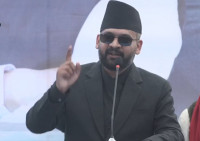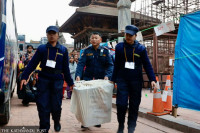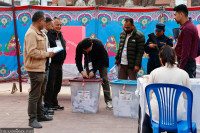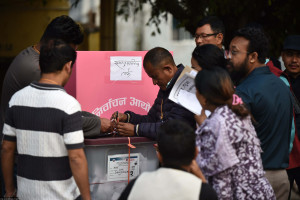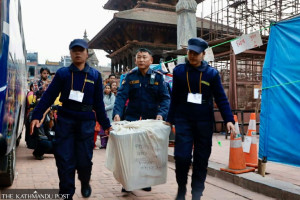National
Nepal’s government has been quietly facilitating urban refugee resettlement for years
Despite the lack of resettlement policy, successive governments have assisted the resettlement of 139 urban refugees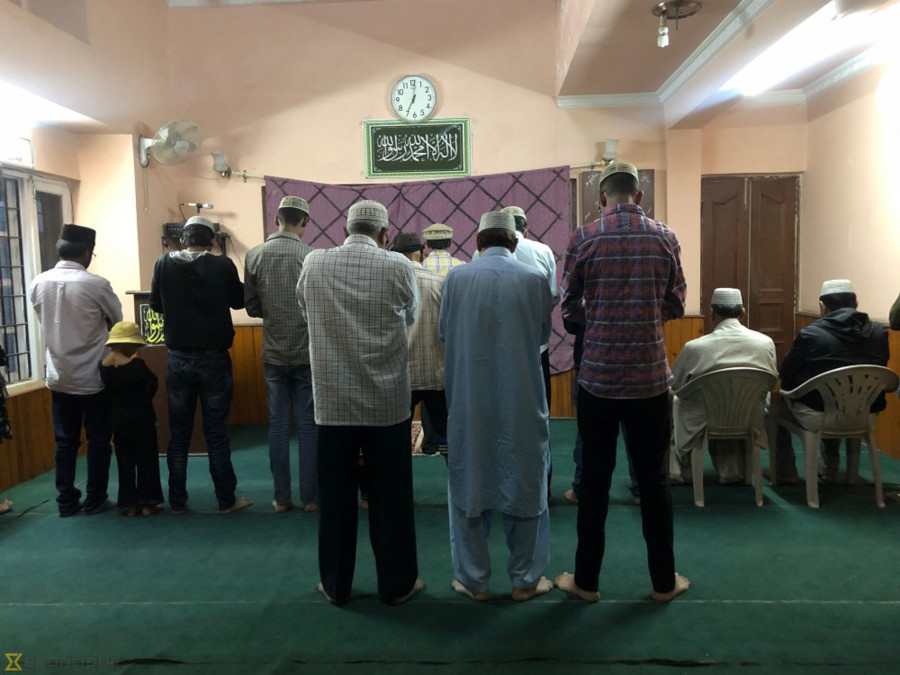
Anil Giri
Since 2012, successive governments have been quietly facilitating the resettlement of urban refugees, the Post has learned. Most recently, earlier this month, 72 Pakistani and Bangladeshi urban refugees had their overstay visa fees waived, thus allowing them to leave the country and resettle in Canada.
The first such decision was made in 2012 by the Baburam Bhattarai administration, on the grounds that “prolonging their [urban refugees’] stay in Nepal would only complicate matters”. The 2012 decision was announced as a “one-time provision that should not be taken as a precedent.”
However, successive governments, including the current KP Sharma Oli administration, have been using similar means to allow the quiet resettlement of refugees.
Earlier in June, a Cabinet meeting waived around Rs 60 million in overstay charges for 72 Pakistani and Bangladeshi nationals, who then quietly left the country and settled in Canada. These refugees had arrived in Nepal in 2010.
Nepal is not party to the 1951 UN refugee convention and most refugees in Nepal are classified by the United Nations as “urban refugees” but the government calls them “illegal immigrants”. In 2012, the number of urban refugees in Nepal was 272.
Currently, there are around 700 urban refugees from various countries living in Kathmandu, according to official data.
Despite the lack of declared resettlement policy, since July 2013, 139 urban refugees have been resettled in Canada and Australia, according to data obtained by the Post.
In 2007, Nepal publicly allowed the third country resettlement of Bhutanese refugee in a number of countries, including the United States, Canada, and Australia. But in the case of other urban refugees, the government has made no public declaration, and instead taking Cabinet decisions and sending them for third-country resettlement on a piecemeal basis upon requests from the UN refugee agency, the United Nations High Commissioner for Refugees.
“We do not have any declared policy to resettle them in third countries because we call them illegal immigrants,” Ram Krishna Subedi, the Home Ministry spokesperson, told the Post. “The UN refugee agency coordinates its resettlement sponsorship and writes to us to waive their overstay charges. Then, the Cabinet takes the decision.”
“This is good since they will have better lives in third countries,” said Gopal Shiwakoti, chairman of INHURED, an organisation that advocates refugee rights. “But this only happens on an episodic basis.”
In Nepal, UNHCR works independently to determine the status of refugees and assists them with subsistence allowances, health care, education and other basic needs. It also coordinates sponsorships in third countries or refugees themselves can seek private sponsorships. Then, the UN refugee office in Kathmandu writes to the government to waive overstay fees.
Anyone remaining in Nepal for more than 185 days after the expiry of their visa is considered “illegal immigrant”. Those overstaying have to pay $5 per day as per the immigration law.
By the government’s own calculation, the number of urban refugees is growing, posing various security challenges and demographic problems, according to officials.
“We are not a part of the UN refugee convention but on humanitarian grounds, we have been hosting a large number of refugees in our country,” said Subedi. “So although we don’t have a declared policy for third-country resettlement, we have no other alternative.”
Most urban refugees from Pakistan, Afghanistan, Bangladesh and Somalia have left for third countries in the last six years, according to data obtained by the Post.
As more foreign nationals are looking for asylum in Nepal, the government has tightened provisions that allow refugees to enter the country. The Department of Immigration has stopped granting on-arrival visas to citizens of Nigeria, Ghana, Zimbabwe, Swaziland, Cameroon, Somalia, Liberia, Ethiopia, Iraq, Palestine and Afghanistan.
“If we allow them to enter without strict provisions, Nepal could turn into a safe haven for urban refugees, whose objectives are to make their way to Europe and America,” said one official at the Department of Immigration.




 12.1°C Kathmandu
12.1°C Kathmandu


